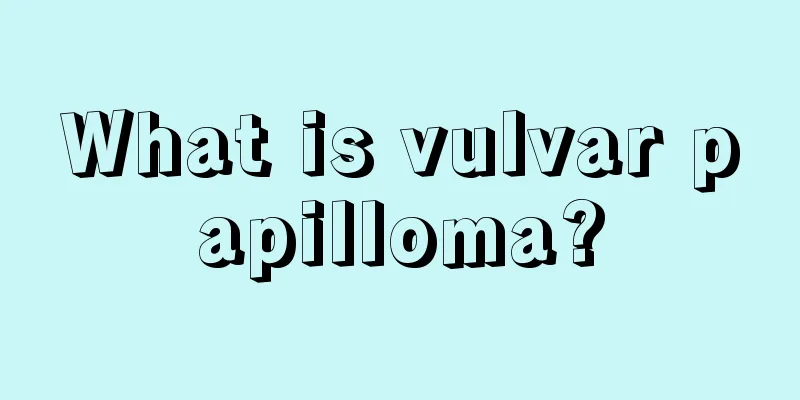Pain in both fallopian tubes

|
There are two ovaries and two fallopian tubes on both sides of the female uterus. The function of the ovaries is to discharge eggs, while the function of the fallopian tubes is to allow male sperm and female eggs to combine in the fallopian tubes and then be sent to the uterus. If a woman has pain in both fallopian tubes, she will feel abdominal pain and unbearable pain during menstruation. So what should I do if the fallopian tubes hurt on both sides? The early symptoms of fallopian tube obstruction include: 1. Dysmenorrhea: Dysmenorrhea caused by pelvic congestion usually begins with abdominal pain one week before menstruation, which becomes more severe as the menstrual period approaches until the onset of menstruation. 2. Menstrual irregularities: The fallopian tubes are adjacent to the ovaries. Generally, diseases of the fallopian tubes do not affect the function of the ovaries or the amount of menstrual flow. Menstrual abnormalities only occur when inflammation spreads to the ovaries and damages ovarian function. Frequent menstruation and heavy menstrual flow are extremely common, and may be the result of pelvic congestion and ovarian dysfunction. Excessive menstruation can be caused by uterine fibrosis due to chronic inflammation, abnormal uterine position due to incomplete uterine involution or adhesions. 3. Abdominal pain: There are different degrees of pain in the lower abdomen, which is mostly hidden discomfort, soreness, swelling and a feeling of falling in the waist, back and sacrum, which is often aggravated by fatigue. Due to pelvic adhesions, there may be pain when the bladder or rectum is filled or empty, or other symptoms of bladder and rectal irritation, such as frequent urination and tenesmus. 4. Infertility: The fallopian tube itself is damaged by lesions, causing blockage and leading to infertility, with secondary infertility being more common. Others: such as increased leucorrhea, pain, bowel disorders, fatigue, work influence or intolerance to long-term work, neurological symptoms and depression, etc. I hope that through today’s popular science, everyone can have a more intuitive understanding of the fallopian tubes and dispel all doubts on the road to pregnancy. Many patients come from all over the country. They have taken many detours and suffered a lot. Whenever there is a problem with the hysterosalpingography, the advice you get is: go for IVF, you won’t be able to get pregnant. Some people really did try IVF, but it didn’t work the first time, the second time, or the third time. In fact, for patients with fallopian tube obstruction, it is necessary to choose a treatment method based on the specific situation to restore the canalization of the fallopian tube. The best method is to use "hysteroscopy and laparoscopy combined surgery", which is a minimally invasive treatment method with relatively little impact on the pelvic environment. |
<<: What to do if the fallopian tube is completely blocked
>>: Where is the best place for warm moxibustion for women?
Recommend
Parse.ly: Facebook's new algorithm caused a 28% drop in publisher referral traffic
In January 2018, Facebook announced changes to it...
A small folk remedy cured vulvar leukoplakia, a small folk remedy cured a serious disease
China has always chosen to use folk remedies to t...
Jelly-like discharge at 38 weeks of pregnancy
After ten months of pregnancy, the expectant moth...
What does the flower language of daffodils represent? How to grow daffodils
Narcissus likes warm, humid and well-drained envi...
What is the origin of Wanzhou grilled fish? Which grilled fish brands are famous in China?
Grilled fish is a dish. The main ingredients are ...
8 things to pay attention to during menstruation
Menstruation is very important for women. Normal ...
What foods can you eat during confinement without gaining weight?
During the confinement period, many women will de...
A line is drawn for a 5-day delay in menstruation
If your period is delayed for 5 days and there is...
Will eating whole wheat bread at night make you fat? When is the best time to eat whole wheat bread?
Whole wheat bread is a kind of bread that is rich...
Can pregnant women eat fish roe?
Can a mother eat fish roe? We know that a mother&...
What medicine can cure breast hyperplasia quickly?
Breast hyperplasia is a problem that many women e...









